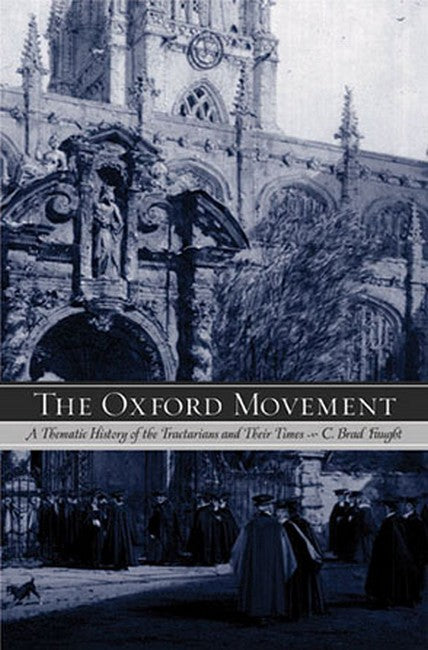C. Brad Faught is Assistant Professor of History at Tyndale University College and Seminary in Toronto.
Request Academic Copy
Please copy the ISBN for submitting review copy form
Description
Preface & Acknowledgments
1 Politics
Controversy and Passion
2 Religion and Theology
Principles and Promulgation
3 Friendship
Fraternity and Farewell
4 Society
Revival and Reclamation
5 Missions
Churchmanship and Bishoprics
Afterword
Notes
Bibliography
Index
“Anyone trying to understand why the institutions of Christianity refuse to disappear and why some of its branches—well, its key branch, which remains Roman Catholicism—continue to be obstinate and even belligerent in the face of growing secular tolerance on key social issues like gay rights will find the history of the Oxford Movement remarkably pertinent. It is Faught’s great achievement as a historian and communicator that he leads readers through all the theological and metaphysical complications and occasional muddle with such writerly clarity and scholarly élan.”—John Fraser, National Post
“The Oxford Movement is something of a niche volume, but it illuminates that niche nicely.”—Alan Cochrum, Morning Star-Telegram
“The strength of this book lies in its thematic approach to the Oxford movement and its influence on English society.”—R. M. Kollar, Choice
“This is a tightly written, well-argued, and thoroughly annotated work. It should become a required text for anyone teaching in this area.”—Mary Eleanor Hill, Anglican Theological Review
“Faught’s training as a journalist as well as a historian makes the story unfold in a brisk and compelling manner.”—Pegram Johnson III, Anglican and Episcopal History
“To those familiar with the Oxford Movement, this book provides some additional details and suggests a few variant interpretations, particularly in relation to the movement in the second half of the nineteenth century.”—John T. Ford, Religious Studies Review
“In sum, this study provides an accessible but conventional introduction to an important and still controversial episode in Victorian religion.”—William Whitla, University of Toronto Quarterly

